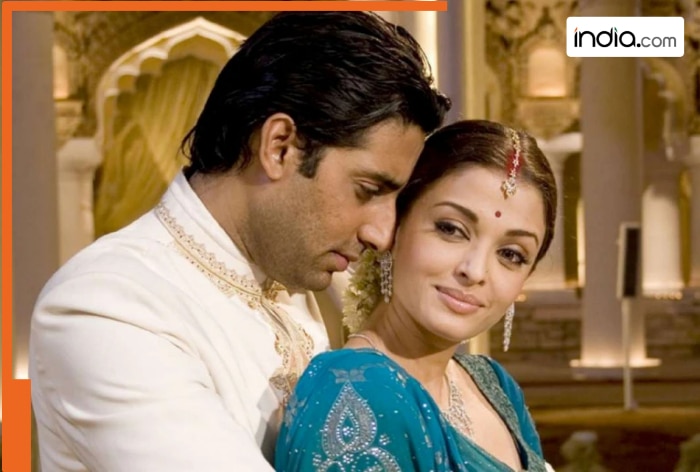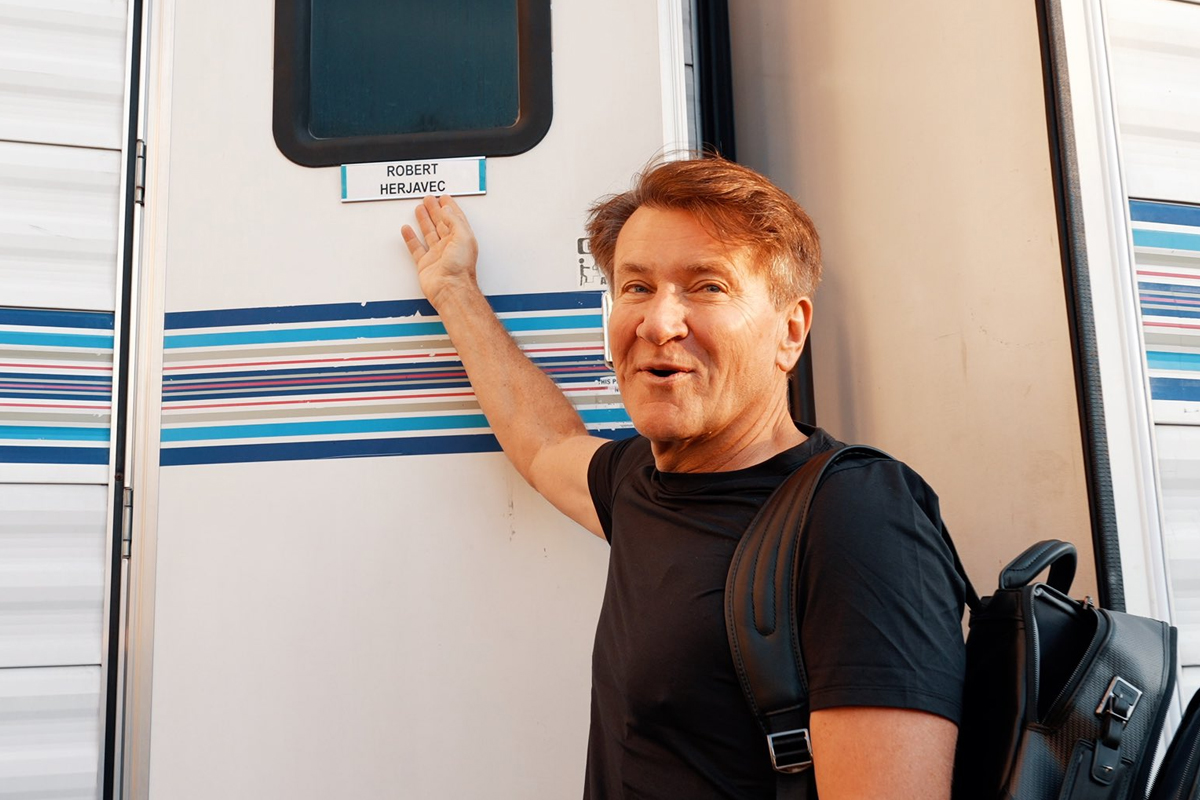Before Eva Burch and I walked into her home in Mesa, Arizona, she checked on the birds nesting right outside her door. Still in her scrubs from working as a nurse practitioner and without much time before her night shift duties as a mom of two boys, she sat down at her kitchen table to talk to me about her third shift—being a state senator. In March, she made national news for giving a rousing speech on the legislative floor about how she was currently pregnant and planning to have an abortion for medical reasons. “I don’t think people should have to justify their abortions,” Burch, who has a long history of pregnancy-related health complications, said while surrounded by other legislators, many of them women. “But I’m choosing to talk about why I made this decision because I want us to be able to have meaningful conversations about the reality of how the work that we do in this body impacts people in the real world.”
In the last two years, the rules for when and how pregnant people can get an abortion in Arizona have been consistently in flux. Before Dobbs, former governor Doug Ducey signed a law banning all abortions after 15 weeks, with no exceptions for rape or incest. But the state had never officially struck an 1864 law from the books that prohibited nearly all abortions and criminalized those who provided them, so that Civil War–era law went into effect after being upheld by the state’s Supreme Court in April, before eventually getting replaced by the current 15-week ban. Pregnant people seeking abortions in the state are also subject to a 24-hour waiting period between the first appointment, during which patients undergo a mandatory ultrasound and counseling, and the second visit, when the abortion takes place. However, with limited clinics across the state, that wait can sometimes take longer.
During that waiting period, Burch, who represents District 9, spoke to her colleagues on the statehouse floor. “The timing of it was critically important,” Burch told me. “Even those who maybe are disapproving of abortion fundamentally would be sympathetic to what I was going through—that this was a wanted pregnancy, that I had experienced miscarriages before, that I’d experienced traumatizing complications from my miscarriages before, and that the only reason I was still pregnant was because I was being forced.” Within days, she was interviewed by the Associated Press, The Cut, and The Washington Post, swiftly catapulting her local candidacy to a national scale.
Now she’s running for reelection. She’s sharing the ballot with an initiative that would establish a “fundamental right” to abortion care in Arizona up until about the 24th week of pregnancy, or later if a health care professional decides it’s needed to “protect the life or physical or mental health of the pregnant individual.” Burch is part of an unofficial cohort of women who are running for office in the 2024 election cycle and telling their abortion stories on the campaign trail. Their lived experiences have collided with a unique and fraught moment in United States history. This is the first presidential election since the Supreme Court overturned Roe v. Wade in June of 2022. And with a significant share of the electorate voting with abortion in mind, the Democratic nominee for president, Kamala Harris, has not been quiet about her views on reproductive freedom and abortion access, even reminding listeners of the Call Her Daddy podcast recently that she was the first sitting vice president to ever visit a reproductive health care clinic.
The emergence of this new cohort of candidates follows a long history of women running on their uniquely gendered experience, which has often involved sharing the harsh realities of what motherhood can look like in America. United States senator Patty Murray, who represents Washington and is now third in line for the presidency, ran decades ago as a “mom in tennis shoes” after a male legislator gave her that epithet. In 2018, Maryland Democratic gubernatorial candidate Krish Vignarajah and Wisconsin Democratic gubernatorial candidate Kelda Roys both breastfed their children in political advertisements. And when Elizabeth Warren was running for president in 2020, she made universal childcare one of her main campaign promises after detailing how her Aunt Bee had come to watch the kids while she taught law.
After Donald Trump was elected in 2016, the way women ran for office shifted, Erin Vilardi, the CEO and founder of Vote Run Lead Action, told me. “Women are no longer quieting parts of themselves and quieting parts of their lives when they’re running for office, and that includes abortion care,” she said. “Because you have to be able to tell voters on this major national issue both your expertise on this and your lived reality. That makes you a really good person to go make laws about this issue.” Vote Run Lead Action trains women to run for office and stay safe while doing so. A core component of its program includes storytelling training. “If you’re not ready to tell that story, then you’re not ready to tell that story. That’s okay, don’t use it on the campaign trail,” Vilardi said. It’s the vividness of these stories, she added, that can create collective change because the emotional resonance is potent. “For voters, you have a lot of noise to cut through.”
I spoke with three women who told their abortion stories while campaigning for state congressional seats. They are all from states that now have stricter abortion bans since the Dobbs decision, and all three had abortions for medical reasons in wanted pregnancies. Their stories—which they’ve now told countless times—transformed what could have been hyperlocal elections into incredible public affairs. With increased exposure, they told me, came solidarity from women all over the country, access to rooms of national importance, and increased fundraising—along with harassment, verbal abuse on social media, and a magnifying glass on perhaps the most vulnerable moments in their lives.
“We knew that there was going to be media attention with my story, but I was anticipating local media attention,” Burch told me, joking, “I would have worn something different that day.” After her speech went viral, the influx of messages was immediate from people who wanted to share their own stories and those who had hate-filled comments. Burch is “invulnerable to those attacks,” she told me, noting that’s “because I’m so proud of how my story has moved the needle and how it has made so many others feel seen and feel brave and care about the political process more than they did before.” She added, “I know that there are going to be some who are never going to believe me when I tell them that abortion bans will hurt people in my situation. Those people were never going to vote for me, and they probably could never possibly be interested in what the truth of the situation is.”
When Marilyn Lands ran for, and ultimately flipped, a seat in the Alabama state House during a special election, she didn’t know she was going to tell anyone about the abortion she’d had decades ago. That is, until she heard Alyssa Gonzales’s story. Gonzales, also from Alabama, found out she was pregnant just three days before Roe was overturned. “I had just given birth to a baby boy only three months earlier. My body had barely recovered from the last pregnancy, and my fiancé and I simply were not ready to have another child,” she wrote in HuffPost. The two decided to continue the pregnancy anyway: “With the same excited energy we felt with our firstborn son, we again started thinking about names and dreaming about who they might become.”
Months later, she got the bad news. Her fetus had been diagnosed with Trisomy 18, a genetic disorder. Additional testing found, according to Gonzales, that there was “no way this fetus would ever survive.” “Less than a year ago, the next step would have been obvious: We needed to terminate the pregnancy so that the clearly unviable fetus would not cause further complications for my own health,” Gonzales wrote. “But as I would soon learn, this basic and obvious health care decision was no longer mine to make.”







